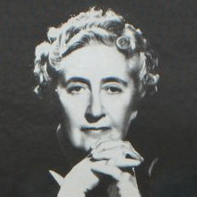
It's easy to end up going round in circles as you try to pick the right genre for your crime novel (image by Rachel Pfuetzner via unsplash.com)
Many indie authors write books to match readers' expectations of a particular genre. But how do you know what those are?
Genre definitions can be imprecise – and many organizations within the book ecosystem take different approaches, resulting in contradiction and conflict.
On Amazon, the situation is further complicated by publishers (whether indie or trade) who assign inappropriate categories to their books.
This can result in nonsensical listings that are in nobody’s interest. For example, curious as to why a contemporary cosy mystery that I published this year had been listed in the top 100 women’s classics section, which from its name I would expect to find the likes of Jane Austen and Charlotte Bronte, I clicked through to investigate. Instead, they were all modern works, and about half of them featured bare-chested men in provocative poses. (My cozy mystery does not, I hasten to add!)
Such dilemmas devalue Amazon categories as a valid route for readers searching by genre category.
While there are no magic solutions, here on the ALLi blog we're staging a series of discussions about genre expectations to help you decide how to classify your books to best marketing advantage. This time, we looking at crime writing in its many forms.
Five Writers, Five Viewpoints

Dog-viewpoint thriller by Amy Shojai
We'll kick off with a couple of succinct summaries. First, Amy Shojai, US author of “dog-viewpoint thrillers” (now there's a great sub-genre!), suggests:
Detective has a professional seeking the answer to the puzzle. Thriller is a ticking clock and readers may know the ID of the bad guy. Mystery is a puzzle and race between protag and reader to solve the crime. Crime… hmnnn, usually falls in the detective realm, I think.
Canadian thriller author and editor Alex McGilvery says:
A thriller needs a scene in which the protagonist is at the mercy of the antagonist. A mystery will have a reveal moment. Crime is more an umbrella which covers stories in which crime is a main theme.
US Today bestselling thriller writer Diane Capri drills down, sharing the gist of definitions used by the International Thriller Writers Association:
- A thriller needs to thrill the reader. If it doesn't, it's not a thriller, so pacing is exceptionally important in a thriller. Thrillers do not include romance. (Relationships yes, romance no.) Romantic Suspense is romance + suspense. Otherwise, it would be called Romantic Thriller or Romantic Mystery.
- Mystery has a slower pace and a puzzle at its core. The question is: Who done it? And increasingly, modern mysteries include: Why did he do it. Mystery comes in several varieties, such as Police Procedural and Amateur Sleuth and the like.
- Cozy Mystery is, IMHO, something closer to chick-lit romantic mystery these days. Once upon a time, a “cozy mystery” was a traditional mystery with a solid cast of characters such as an Agatha Christie. These days, cozies tend to be lighter in tone.
- Suspense, to me, should exist in every book — even non-fiction and romance and sci-fi all the other genres.
- Crime fiction is a big umbrella. On BookBub, this is the catch-all category for MTS (Mystery/Thriller/Suspense) books that don't fall into one of the other categories. There is no BISAC category for “crime fiction” which means that bookstores and libraries don't actually use it for much of anything. But there is one for “Fiction: Crime,” so maybe it comes in handy!
British contemporary crime writer Dave Sivers adds the perspective from his side of the pond:
UK crime writers tend to think of ‘crime' as a genre that embraces MTS as well as espionage, supernatural/woowoo crime and everything else with crime going on. But they're just labels. You can't get a flag paper between Stephen King and John Connolly, yet one is pigeonholed as horror, the other as crime.
Finally, a memorable summary from British historical mystery writer David Penny:
- Detective: hmm, let me light my pipe and consider this.
- Thriller: get those b******s!
- Mystery: what? Who did that! Ahh…
- Crime: Somebody did it. Who? Tell me who!
Last Word to Agatha Christie
While as an indie author, it’s your prerogative to keep or break conventions, it makes sense to label your books with the most appropriate genre so as to create appropriate expectations in the reader. Mind you, back in the Golden Age of Detective Fiction, Agatha Christie broke one of the golden rules of crime-writing in The Murder of Roger Ackroyd, and it doesn’t seem to have done her sales much harm…
With thanks to members of the ALLi Facebook forum, a members-only privilege, for sharing their wisdom and ingenuity.
#Indieauthors - here's help to get you through the minefield of choosing the right genre label for your crime fiction - a five-author conversation curated by @DebbieYoungBN Share on X
OTHER INSIGHTS ABOUT GENRE WRITING
From the ALLi Author Advice Center Archive






I know this website provides quality based articles
or reviews and other data, is there any other website which provides such information in quality?